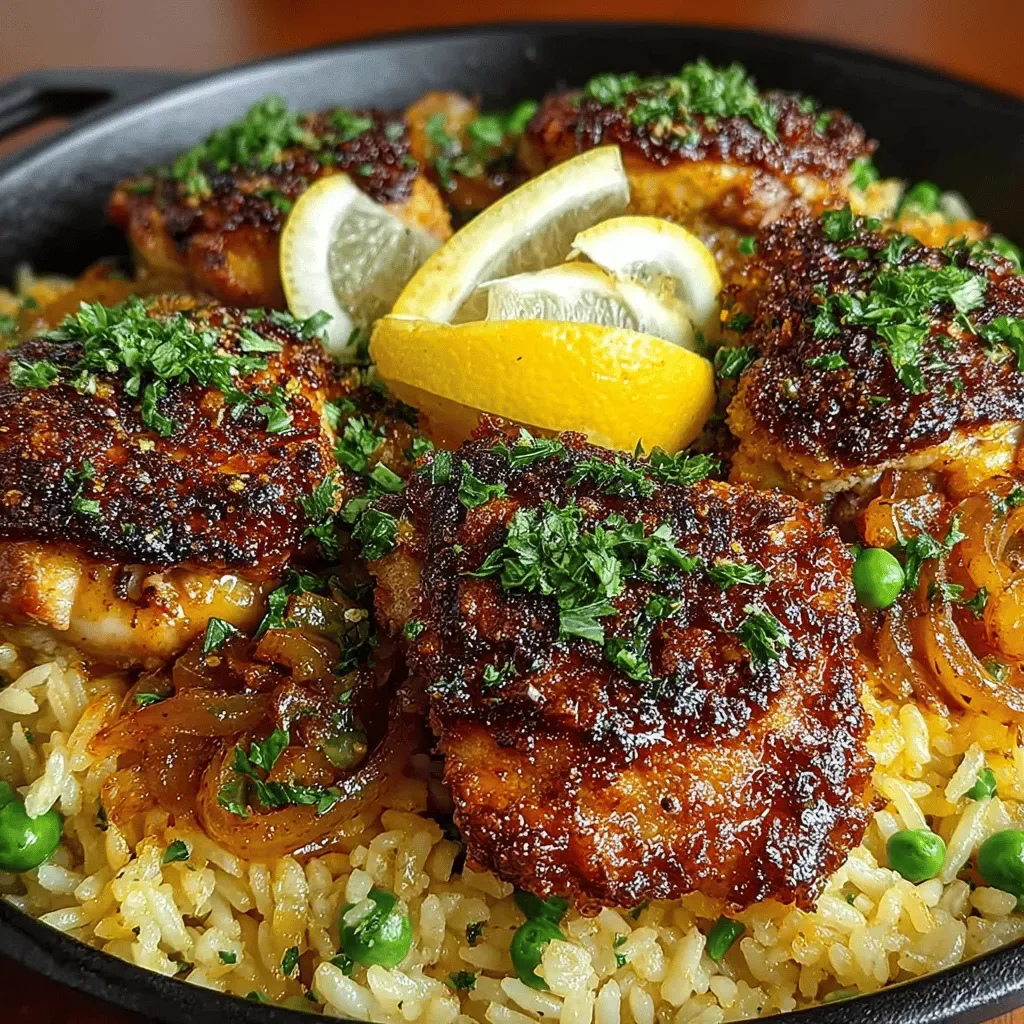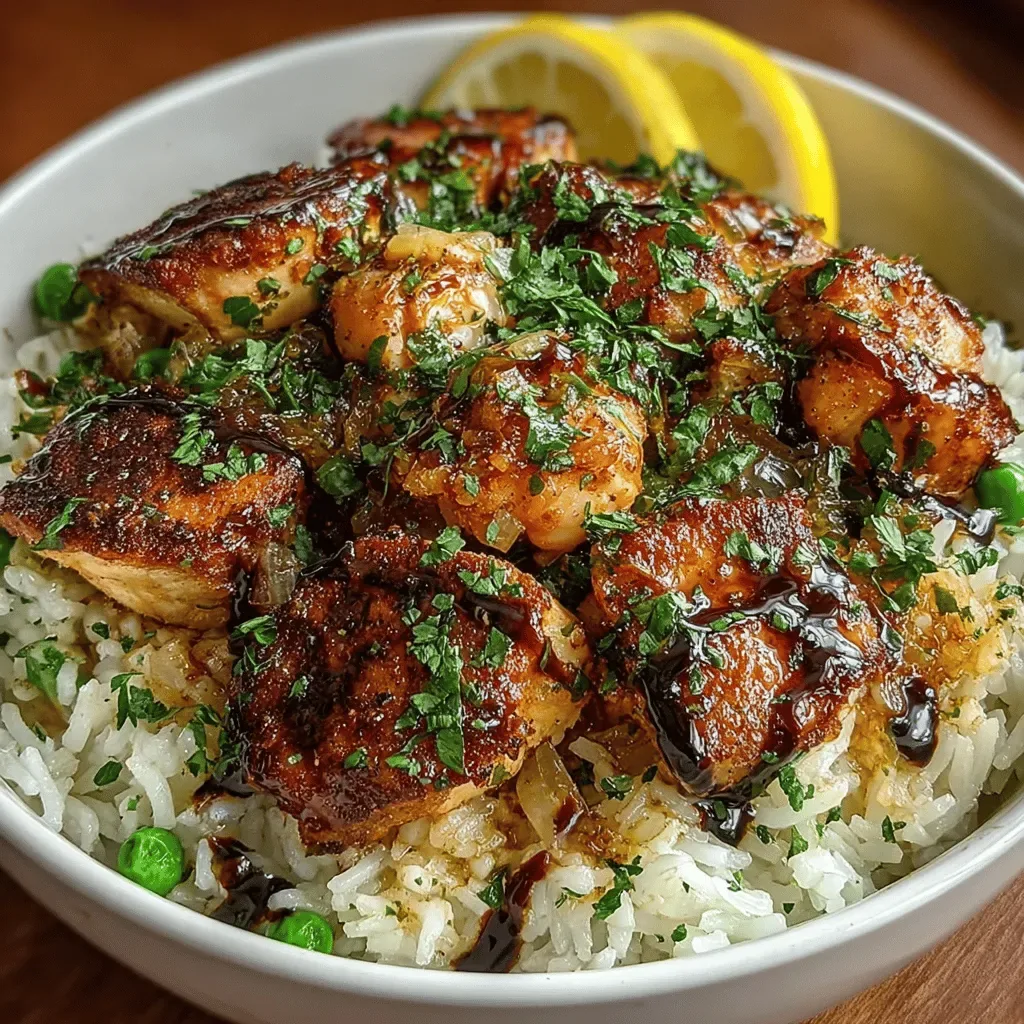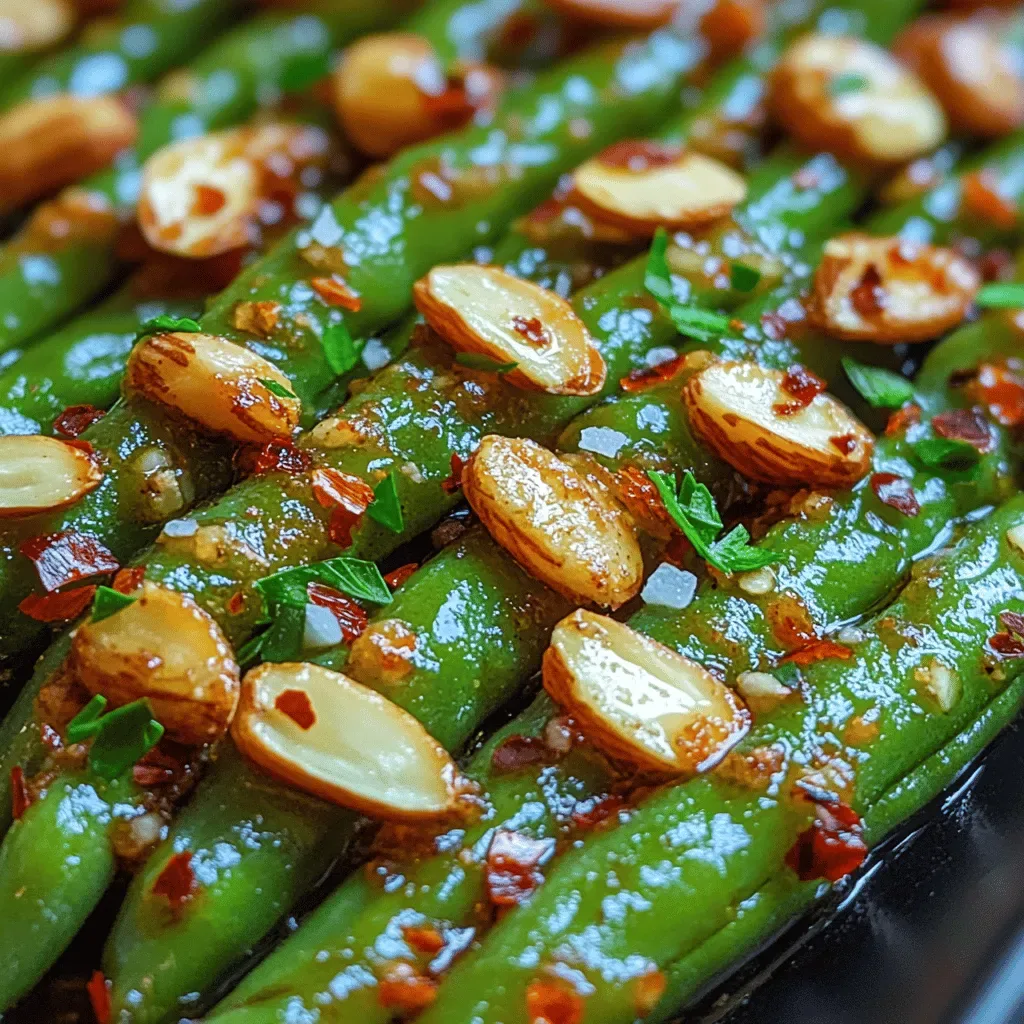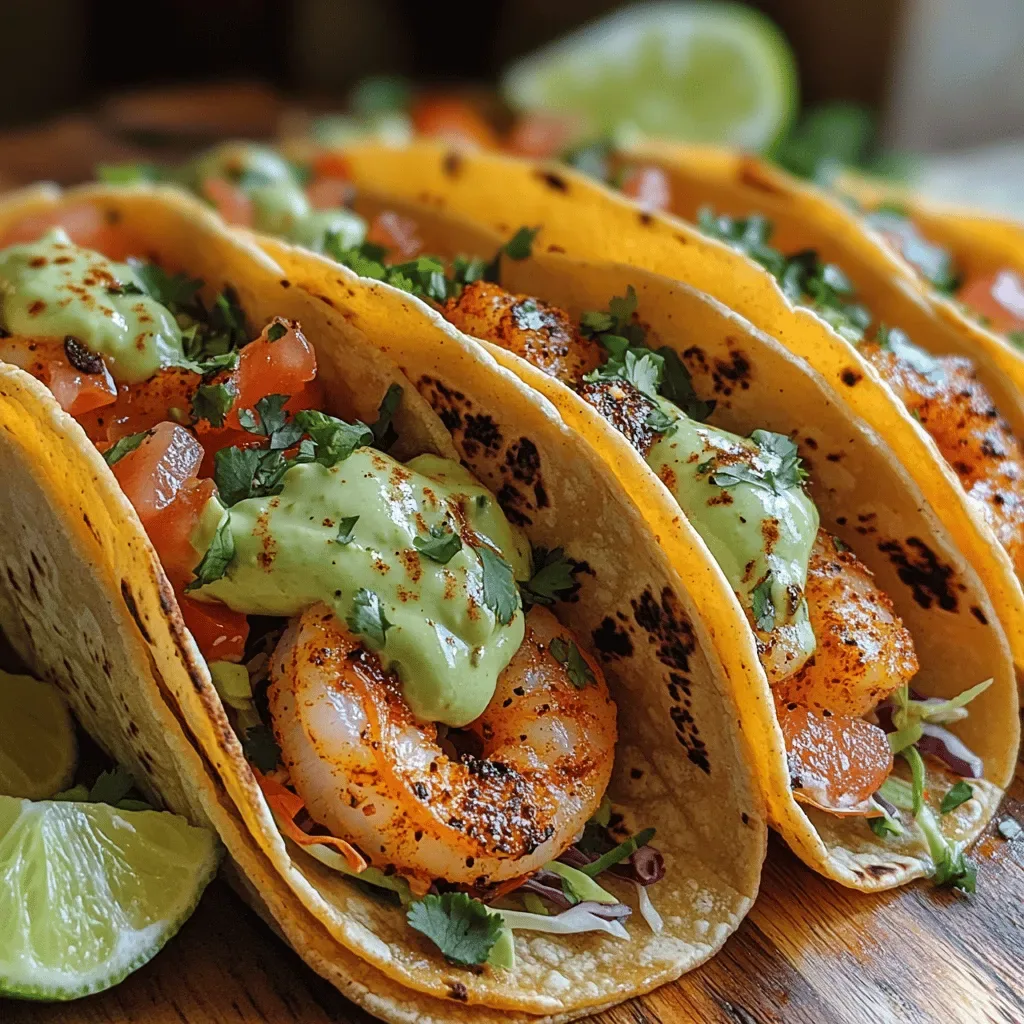Imagine waking up to the aroma of citrus‑bright chicken, fluffy rice, and fresh herbs all cooked together in one pan. This One‑Pan Lemon Herb Chicken and Rice recipe turns a simple breakfast into a restaurant‑quality brunch without the hassle of multiple pots.
What makes it special is the balance of tangy lemon, fragrant rosemary, and a touch of honey that creates a glossy, slightly sweet glaze while the rice soaks up every bit of flavor.
Busy families, brunch‑loving friends, and anyone who craves a hearty yet light start to the day will adore this dish. It’s perfect for weekend brunches, lazy Sunday mornings, or even a make‑ahead weekday breakfast.
The process is straightforward: sear the chicken, simmer the aromatics, add rice and broth, then finish everything in the oven. In under an hour you’ll have a complete, satisfying meal that looks as good as it tastes.
Why You'll Love This Recipe
Bright, Zesty Flavor: Fresh lemon juice and zest lift the dish, giving each bite a clean, uplifting citrus note that pairs perfectly with savory herbs.
One‑Pan Simplicity: All components cook together, meaning fewer dishes, less cleanup, and a cohesive flavor profile that only a single‑pan method can achieve.
Balanced Nutrition: Lean chicken provides protein, brown rice supplies complex carbs, and the vegetables add fiber and essential vitamins for a well‑rounded meal.
Versatile Presentation: Serve it hot straight from the pan, or let it cool and reheat for a quick brunch‑ready plate that looks impressive on any table.
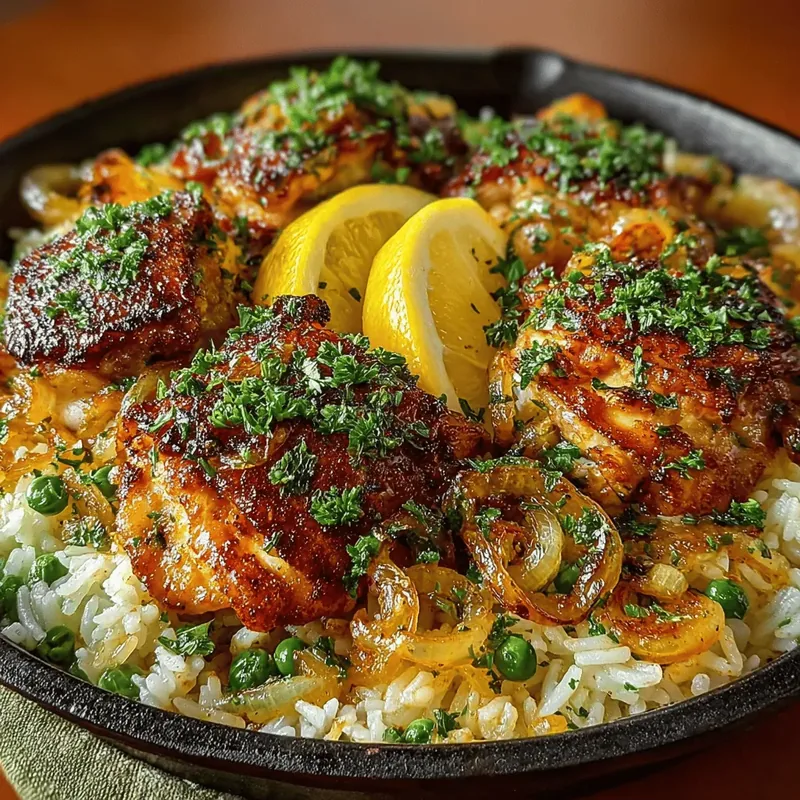 Ingredients
Ingredients

For this brunch‑ready dish I rely on fresh, high‑quality ingredients that each play a distinct role. The chicken breasts give a tender, protein‑rich foundation, while the brown rice absorbs the lemon‑herb broth. Bright vegetables add texture, and the herb‑lemon sauce ties everything together with a glossy, aromatic finish.
Main Ingredients
- 4 boneless, skinless chicken breasts (about 1½ lbs)
- 1 cup long‑grain brown rice
- 2 cups low‑sodium chicken broth
- 1 cup frozen peas and carrots mix
Marinade & Sauce
- 3 tablespoons olive oil
- 2 cloves garlic, minced
- Zest of 1 lemon
- 3 tablespoons fresh lemon juice
- 1 tablespoon honey
- 1 tablespoon chopped fresh rosemary
- 1 tablespoon chopped fresh thyme
Seasonings & Garnish
- ½ teaspoon sea salt (or to taste)
- ¼ teaspoon freshly ground black pepper
- ¼ teaspoon red‑pepper flakes (optional)
- Fresh parsley, chopped (for garnish)
- Lemon wedges (for serving)
Each component is chosen for its ability to contribute texture, flavor, or visual appeal. The olive oil and honey help the chicken brown while adding a subtle sweetness that balances the lemon’s acidity. Fresh rosemary and thyme infuse the broth with earthy notes, and the peas‑carrots add a pop of color and natural sweetness that rounds out the dish.
Step-by-Step Instructions
Preparing the Base
Gather all ingredients, then pat the chicken breasts dry with paper towels. This step is crucial for achieving a golden crust. Sprinkle both sides with sea salt, black pepper, and red‑pepper flakes if you like a hint of heat. Let the seasoned chicken rest for 10 minutes while you preheat the skillet.
Cooking Process
- Heat the Skillet. Place a large, oven‑safe skillet over medium‑high heat for 3 minutes. Add 3 tablespoons olive oil and swirl until the oil shimmers but does not smoke. This temperature jump creates a sear that locks in juices.
- Sear the Chicken. Lay the chicken breasts in the hot pan, giving each piece enough room to breathe. Cook undisturbed for 4‑5 minutes until the underside turns deep golden brown. Flip and sear the other side for another 4 minutes. The crust should be firm, not burnt.
- Deglaze & Add Aromatics. Reduce heat to medium. Add 2 cloves minced garlic and stir for 30 seconds until fragrant. Pour in 3 tablespoons fresh lemon juice and scrape the browned bits (fond) from the pan – these are flavor gold.
- Build the Sauce. Stir in 1 tablespoon honey, zest of 1 lemon, chopped rosemary, and thyme. Let the mixture simmer for 2 minutes, allowing the honey to meld with the citrus and herbs, creating a glossy coating.
- Add Rice & Liquid. Sprinkle 1 cup brown rice over the chicken, then pour in 2 cups chicken broth. Gently nestle the frozen peas‑carrots mix into the liquid. Bring the whole pan to a gentle boil, then cover with a lid.
- Finish in the Oven. Transfer the skillet to a pre‑heated 375°F (190°C) oven. Bake for 18‑20 minutes, or until the rice is tender and the chicken reaches an internal temperature of 165°F (74°C). Remove from the oven and let rest, covered, for 5 minutes.
Finishing Touches
After resting, slice the chicken against the grain, then fluff the rice with a fork. Sprinkle chopped fresh parsley over the top and arrange lemon wedges on the side for an extra burst of brightness. Serve immediately while the sauce is still glossy.
Tips & Tricks
Perfecting the Recipe
Room‑Temperature Chicken: Let the breasts sit out for 10‑15 minutes before cooking. This prevents a cold center and promotes even browning.
Don’t Overcrowd: If your skillet feels cramped, sear the chicken in two batches. Overcrowding creates steam, which sabotages the crust.
Flavor Enhancements
A final squeeze of fresh lemon juice right before serving lifts the entire dish. For a subtle heat, stir in a pinch of red‑pepper flakes with the garlic. Finish with a tablespoon of cold butter swirled into the sauce for a velvety mouthfeel.
Common Mistakes to Avoid
Skipping the resting period causes all the juices to spill onto the plate, leaving the chicken dry. Also, cooking on too high a flame can burn the garlic and honey, imparting a bitter taste. Keep the heat moderate after adding aromatics.
Pro Tips
Fresh Herbs Over Dried: Fresh rosemary and thyme release essential oils that dried herbs can’t match, giving the sauce a brighter, more complex profile.
Use a Meat Thermometer: Insert it into the thickest part of the breast; 165°F guarantees safety without overcooking.
Toast the Rice Lightly: Before adding broth, give the rice a quick 2‑minute toast in the pan. This adds a nutty depth that complements the lemon.
Cover While Baking: If you notice the sauce drying out, loosely cover the skillet with foil halfway through the oven time.
Variations
Ingredient Swaps
Replace chicken with turkey cutlets, pork tenderloin medallions, or firm tofu for a vegetarian twist. Swap brown rice for wild rice, quinoa, or even orzo if you prefer a different texture. Fresh vegetables such as bell peppers, zucchini, or snap peas can be substituted for the peas‑carrots mix.
Dietary Adjustments
For a gluten‑free version, ensure the broth is certified gluten‑free. To make it dairy‑free, keep the recipe as written—no dairy is needed. For low‑carb or keto, replace brown rice with cauliflower rice and swap honey for a keto‑friendly sweetener like erythritol.
Serving Suggestions
Pair this one‑pan wonder with a light arugula salad dressed in lemon vinaigrette, or serve alongside crusty sour‑dough bread to mop up the sauce. For a more indulgent brunch, add a side of buttery biscuits or a dollop of Greek yogurt flavored with fresh herbs.
Storage Info
Leftover Storage
Allow the dish to cool to room temperature, then transfer it to an airtight container. Refrigerate for up to 4 days. For longer keeping, portion into freezer‑safe bags, lay flat, and freeze for up to 3 months. Label with date for easy tracking.
Reheating Instructions
Reheat in a 350°F (175°C) oven, covered with foil, for 15‑20 minutes until steaming hot. This gentle method preserves moisture. If you’re in a hurry, microwave individual portions on medium power for 2‑3 minutes, stirring halfway and adding a splash of broth to revive the sauce.
Frequently Asked Questions
This One‑Pan Lemon Herb Chicken and Rice brings together bright citrus, fragrant herbs, and hearty grains in a single skillet, making brunch both elegant and effortless. The detailed steps, storage tips, and creative variations give you everything you need to master the dish and adapt it to any palate. Feel free to experiment with proteins, veggies, or seasonings—cooking is your canvas. Serve it hot, enjoy the aroma, and relish every flavorful bite!

